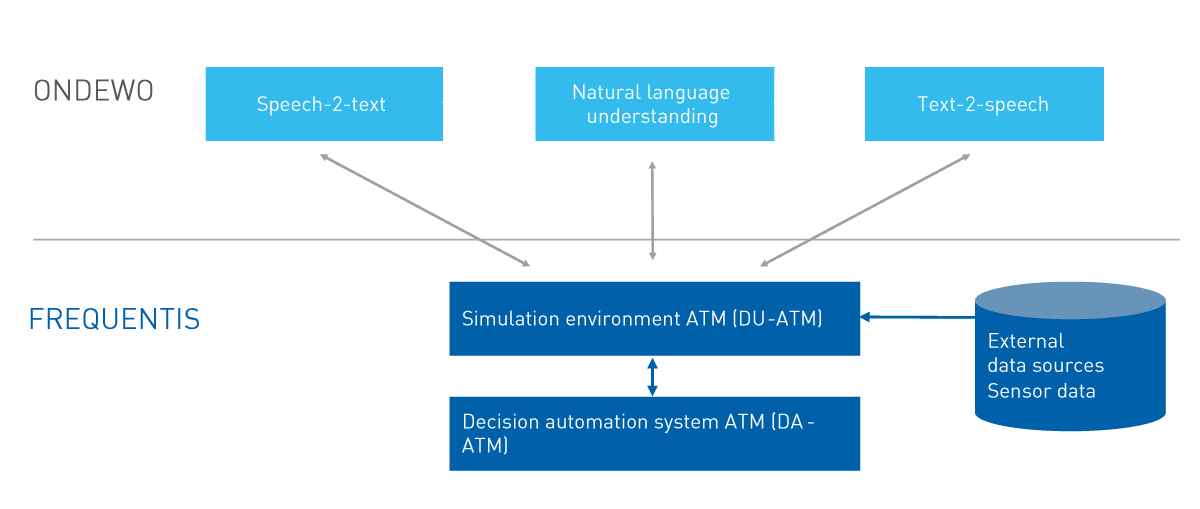The FFG NGS “Next Generation Safety” Project aimed to provide AI-based automation in Air Traffice Management (ATM). In particular, the aim is to increase safety, reliability and speed in Air Traffic Management (ATM) processes through artificial intelligence (AI) with a focus on automation (i) communication between air traffic controllers and pilots and (ii) situation monitoring and corrective actions as required by the situation. AI automation of standard situations allows air traffic controllers to focus on safety-critical, complex situations with a lower stress level and more time.
This project researches and develops new AI algorithms and methods in the areas of Speech-2-Text (speech recognition), context-sensitive dialogue (Natural Language Processing & Understanding) and Text-2-Speech (human voice synthesis) to automate the communication between air traffic controllers and pilots, as well as a decision automation system for ATM process automation. For the evaluation of AI in security-sensitive environments, a simulation environment for ATM processes will be developed and an external advisory board will be put together with air traffic controllers, pilots, airports, airlines and others.
The industrial research results from the cooperation between the speech AI specialist ONDEWO and the ATM market niche leader Frequentis opened up new possibilities for AI automation in the ATM area in order to achieve the next level of safety in air traffic, which we as humans cannot achieve with our cognitive performance alone. As a basis for this research, the ONDEWO Call Center AI Platform (CCAI) was used to conduct and develop the advanced artificial intelligence algorithms.
The project included technical and operational evaluation, with more than 100 test runs and the collection of feedback from 12 Air Traffic Controllers (ATCOs). It was supported by an advisory board consisting of Austro Control, Skyguide and Austrian Airlines to add an operational viewpoint. Speech-2-Text transcription processing was very fast with an average time of 1.6 sec to process an average of 5-8 seconds of input audio. The radio transcription has been optimised down to a WER 13-14% and CER 8-10% compared to WER of 16% or more of cloud engines.
Based on the good cooperation with Frequentis, the interesting feedback from the participants from the Advisory Board and the current findings, we are pleased about the particularly successful completion of this complex research project. The findings of this research project result in further possible use cases in the ATM area for research and commercial ideas.
For more detailed results, please visit our project partners Frequentis official press release here.



